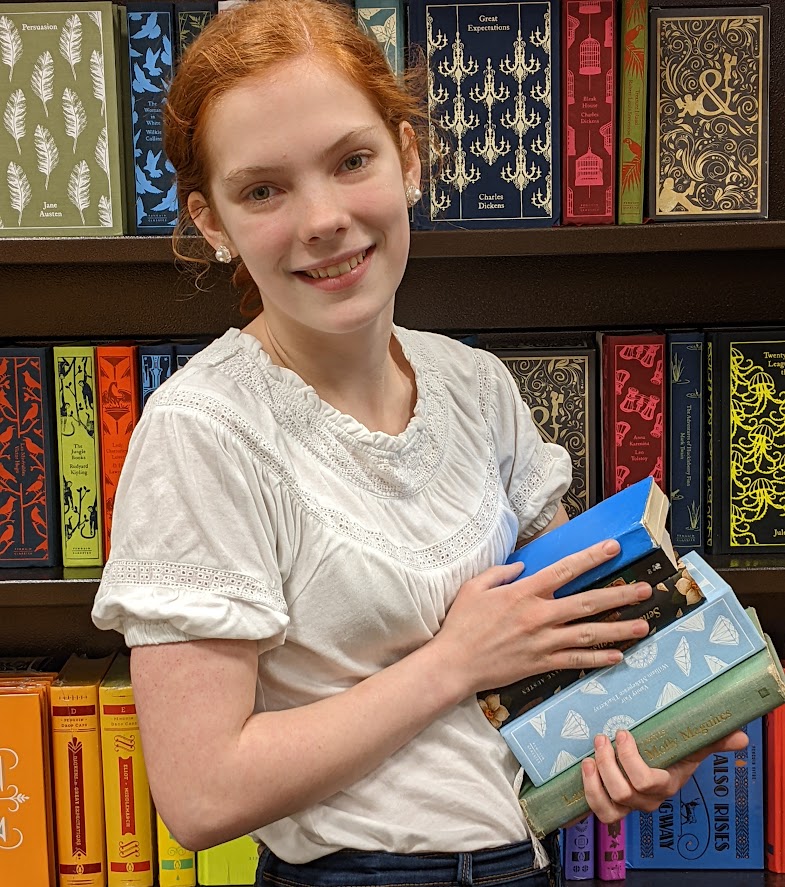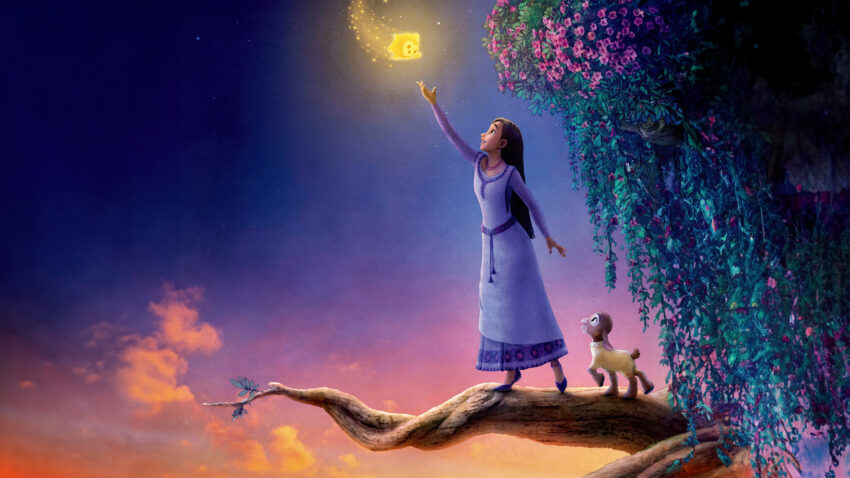Some climaxes have purpose, meaning and drive. We know exactly why each event must take place, and the shocking plot twists the writer throws in serve to heighten the tension. Whether action-adventure, fantasy, or slice-of-life, well-written climaxes provide purpose and meaning behind each event, even as we race through the final chapters of the story.
But what is the cause behind those that don’t? Why do some climaxes contain an exciting series of events, to be sure, yet lack the impact and meaning of other climaxes? Why do we, as an audience, find ourselves yawning through some of the most dangerous stunts in cinema while other stories contain climaxes that have us on the edge of our seat?
It turns out that the answer to these questions can be found through the movie Wish.
Wish
With all of the criticism that Wish garnered, I was expecting a flat, pointless film. And although there were elements that seemed pretty useless (don’t even get me started on the Star itself.) I actually found the movie had quite a few good points, especially in the beginning. Actually, until the star showed up, I sensed a lot of potential from the premise and opening scenes.
Our protagonist is Asha, a young girl growing up in the kingdom of Rosas, ruled by the benevolent magician-king Magnifico. He is intent on protecting his people from the dangers outside their kingdom. His magic is strong enough that he can harness the power of wishes, which are the deepest desire of each person’s heart, and turn them into reality. Wishes are the most beautiful part of a person’s soul, and so, to protect them, the king takes each person’s wish into his palace once they come of age. Although this means that they forget their wish, it also gives the king the opportunity to grant the wish in a pompous ceremony once a month.
Asha is just a few months away from turning in her own wish. Ambitious and bright, she is determined to impress the king and win a place as his apprentice. Once there, she hopes to learn enough magic to grant the wish of her grandfather, who raised her after her father died.
The movie opens to the day that Asha has her interview with Magnifico, and initially, he’s deeply impressed with her energy and boldness. He even shows her his secret room, where all of the wishes float like bubbles at the ceiling. He shows her her grandfather’s wish and explains that, sadly, it is a powerful wish that could be used for evil, and can never be granted. Asha, impulsive as always, bursts out that that’s not fair. It isn’t right for him to judge what someone else could do with the power that he already has. They should at least be given the chance to know what their wish is, so that it can be fought for and achieved on their own.
The king lashes back, saying that it’s his job to protect the kingdom and that if he’s not vigilant, the very same thing that hurt his family could harm Rosas. Asha, taken aback, apologizes, but not before it’s too late. Now, she can never be his apprentice, and he promises never to grant her or her family’s wishes.
Desperate and distraught, she runs to the place where her father taught her to wish on the stars, and makes a wish so powerful that it brings a star to her — and gives her the opportunity to make things right.
Theme and Climax Go Hand-In-Hand
From here, the events in the movie seem to lack purpose. Although the events before the star’s arrival build toward Asha’s desperate wish, the events that follow don’t seem to be building towards much at all. The conclusion, of course, is that Magnifico is defeated by Asha and the star, but how we get there as an audience means so much more than how it ends.
We all know that an animated Disney movie has a happy ending. We don’t watch it to be surprised. We watch to find a deeper meaning, a new level of understanding about the world through seeing a powerful truth. And Wish simply doesn’t offer that.
What’s disappointing here is that Wish actually opens up several really crucial themes with its opening. This is part of why the beginning surprised and impressed me. One such theme is the idea of protection versus freedom. People want to be secure, but they also don’t want to be pinned down. How do we find that balance? Asha, with her brash naivete and her bright optimism, doesn’t see any harm in granting all wishes because, after all, the people of Rosas don’t mean any harm. King Magnifico, on the other hand, carries deep mistrust and cynicism. He’s the perfect foil to Asha because, unlike her, he understands how an idea, a magic as powerful and as deep as a wish, can change everything — even twist a person’s good intentions.
This is actually a theme that a lot of people are exploring in politics and culture, and something that would do well to be addressed. How much of our freedom should we surrender in the name of security? Where is the line between protecting our liberties and standing for anarchy?
And this isn’t the only theme that the movie opens with. King Magnifico’s assumptions about people’s intentions with their wishes open up questions about the value of the concept of being assumed innocent before proven guilty. Asha’s claim that it is better to fight for what is futile than die never knowing what you lived for opens up ideas about the purpose of life. Queen Amaya’s conundrum as she watches the love of her life turn sadistic and power hungry opens up the question, how long are we willing to stay loyal to those we love when they begin to hurt others and refuse to listen to our warnings?
It appears that the movie wanted to highlight the idea that even common, everyday people can change the world. They have an entire song about how each person has stardust within themselves, which makes them each special and powerful. But then that idea isn’t explored or even touched on until the very end, when all the characters use their stardust powers to defeat King Magnifico. The idea that seemingly ordinary people can do incredible things isn’t a terrible theme.
But it can’t just show up in the end. The plot, or at the very least the climax, should work to support this theme. Instead, the writers went out of their way to make a big deal about how powerful stars are, as opposed to people. Rather than giving Asha a moment to connect with the stardust within each person and realize just how powerful it is, the only magic she ever wields is given by the star. Humans don’t seem that powerful at all, and the contrast with the care-free, omnipotent power of Star doesn’t really improve that point. Instead, it seems to argue against it.
Because this theme wasn’t supported and even defeated by the plot and the climax, it doesn’t seem like the movie’s theme at all. And as a result, the events of the climax lack the emotion that the movie opened with. There’s a few plot twists that come across as rather dull, even though they weren’t necessarily predictable. There’s some danger that feels real, but it doesn’t really matter. Some characters make important choices, but they lack emotional impact.
All because the writers haven’t answered WHY. Why do these risks matter? What message does this movie spotlight? What is it here to say to the culture, to literature, to art? Why should I care about this more than any other action-packed film?
Themes are very subtle. They can be hard to spot at first. But when they’re missing, it becomes painfully obvious. Wish opened with an incredible selection of very prevalent, powerful themes, and then left them. The one the writers seemed to be exploring was forgotten until the end, creating a climax that didn’t mean very much to the audience.
But with a theme, you can take the most ordinary story and say something powerful. You can captivate your audience with a climax that has them racing to the very end, even without fantastical settings, magical elements, and a star on earth. So don’t leave your theme out of your climax. Its power is subtle and hard to spot, but in the end, it can make all the difference.



Let us know in the comments:
What stories have you read that used their climax to enhance their theme? What stories have you read that you noticed lacked a theme because of their climax? And how was this article? Too sweet? Too sour? Just right?


Hi! My name is Mara, and I’m a Christian artist, violinist, and blogger. I remember the day that I decided that I would learn something new about what makes a good story from every book I picked up — whether it was good, bad, or a mixture of both. I use this blog as a way of sharing some of the tips and tricks I’ve learned, and highlight which books, cartoons, and movies have taught me the most about writing an awesome story.

